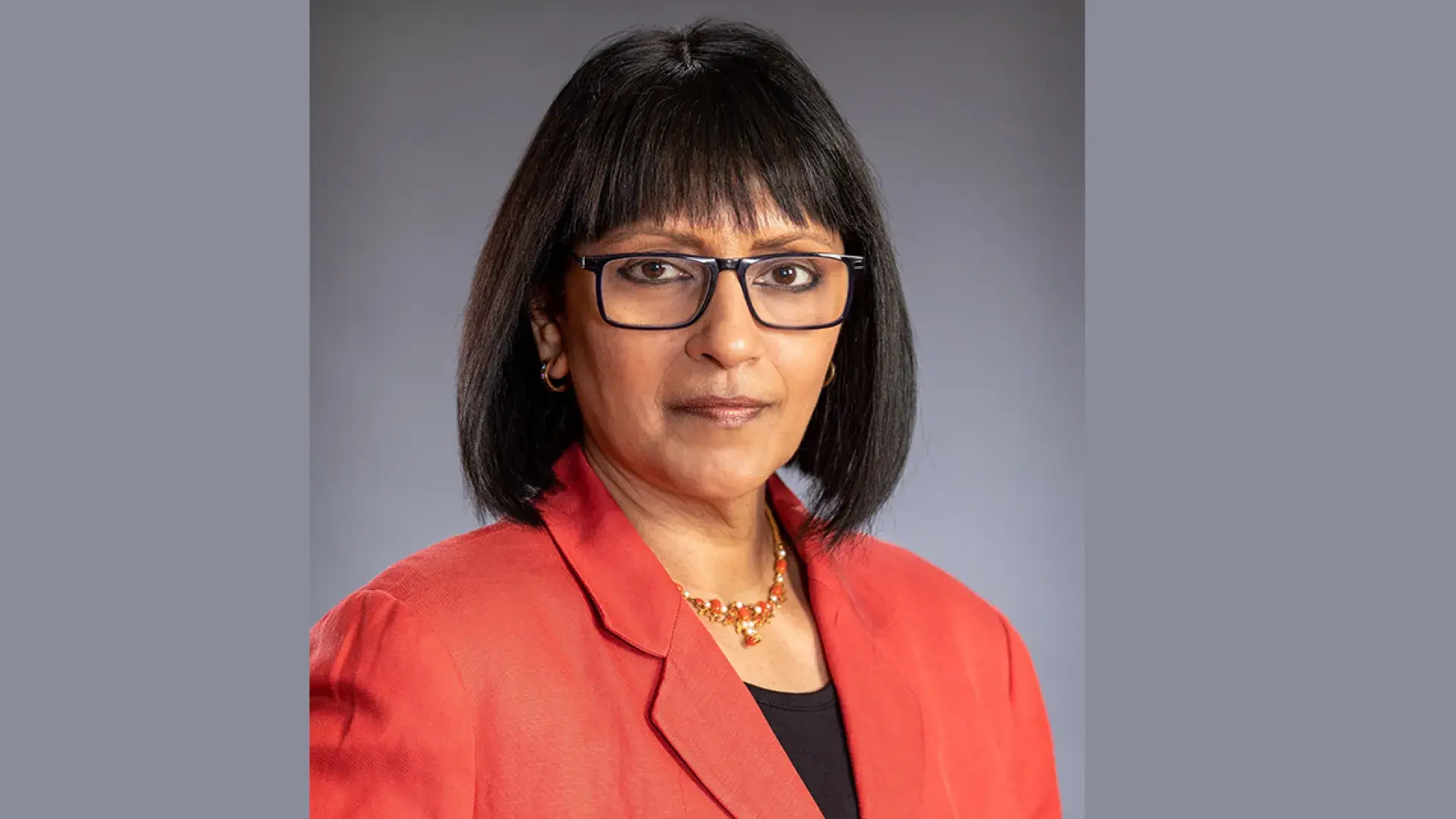
Dr. Subha Ramani, a professor of Health Professions Education at the IHP, plans to expand the focus of the Association for Medical Education in Europe (AMEE) during her tenure as its new president.
Embracing and being respectful of different cultures, and bringing an interprofessional lens, are two of the main goals on which Dr. Subha Ramani will focus as the new president of the Association for Medical Education in Europe (AMEE).
Ramani, an adjunct professor in the Department of Health Professions Education since 2017, a physician at Brigham and Women’s Hospital, and an associate professor of medicine at Harvard Medical School, is the first president outside of Europe and the United Kingdom to lead the organization in its 50-year history.
At the IHP, she teaches qualitative methods to PhD students and developed a new doctoral elective on Cultural and Global Perspectives in Health Professions Education with BA White, an associate professor.
“I'm very conscious of the fact that I was born and raised in South Asia,” said Ramani, who has lived in the United States for more than 20 years. “Having a perspective of being from a different part of the world, I hope being president can have a ripple effect on how we can be more understanding and welcoming as health professions educators and rejoice in diverse perspectives.”
When she was nominated and selected to join the organization’s executive committee six years ago, the committee comprised of one North American and one Australasian (Asia, Australia, and New Zealand) board member. But it was during participation in workshops and projects with members around the world over the past two or three years that she saw how having a wide variety of voices is advantageous.
“There were people from Australia, Indonesia, Thailand, Japan, Singapore, and China as well as from the U.S., Canada, and Europe,” she said, noting that AMEE’s membership has grown to incorporate people from more than 90 countries. “It was an illuminating time, seeing that everyone has the same educational challenges no matter where they are. It’s really about developing a better understanding and being respectful of multiple cultures. It’s all of us together.”
That representation, she believes, can expand into the even larger world of equity and diversity. “The organization is going to have to start thinking more deeply about that, what initiatives it should be engaged in, to call itself a truly global entity,” said Ramani, whose term as president runs into 2025. “It’s about raising the consciousness that we need to be inclusive and respectful to each other, and to walk a mile in the other person's shoes, so to speak.”
Despite having the word “medical” in its name, AMEE as part of its mission incorporates health professions education, meaning workers from across the care spectrum. And despite Europe in its name, the organization is truly global. Applying a more team-based approach is something she wants to apply after seeing it successfully implemented at the MGH Institute.
“My interaction at the IHP is what has raised my awareness of us needing to be more interprofessional,” she said. “As physicians, we're constantly engaging with nursing staff, social service staff, therapy staff, and pharmacy staff,” she said. “So, you're learning with them all the time and it's ingrained to say, ‘I need to ask my nursing colleague this question’ or ‘I need to go in to talk to the patient with them’. The IHP has really helped me in that.”
In addition to taking the reins as a new president, Ramani also is working with the organization’s new CEO, something she sees as a turning point. “This is a time of creating a new direction that we have to forge together, while preserving the best of the old traditions,” she said. “I look at it as how I can contribute to the mission and make a difference because the more people around the table, the more diverse the perspectives can be.”
